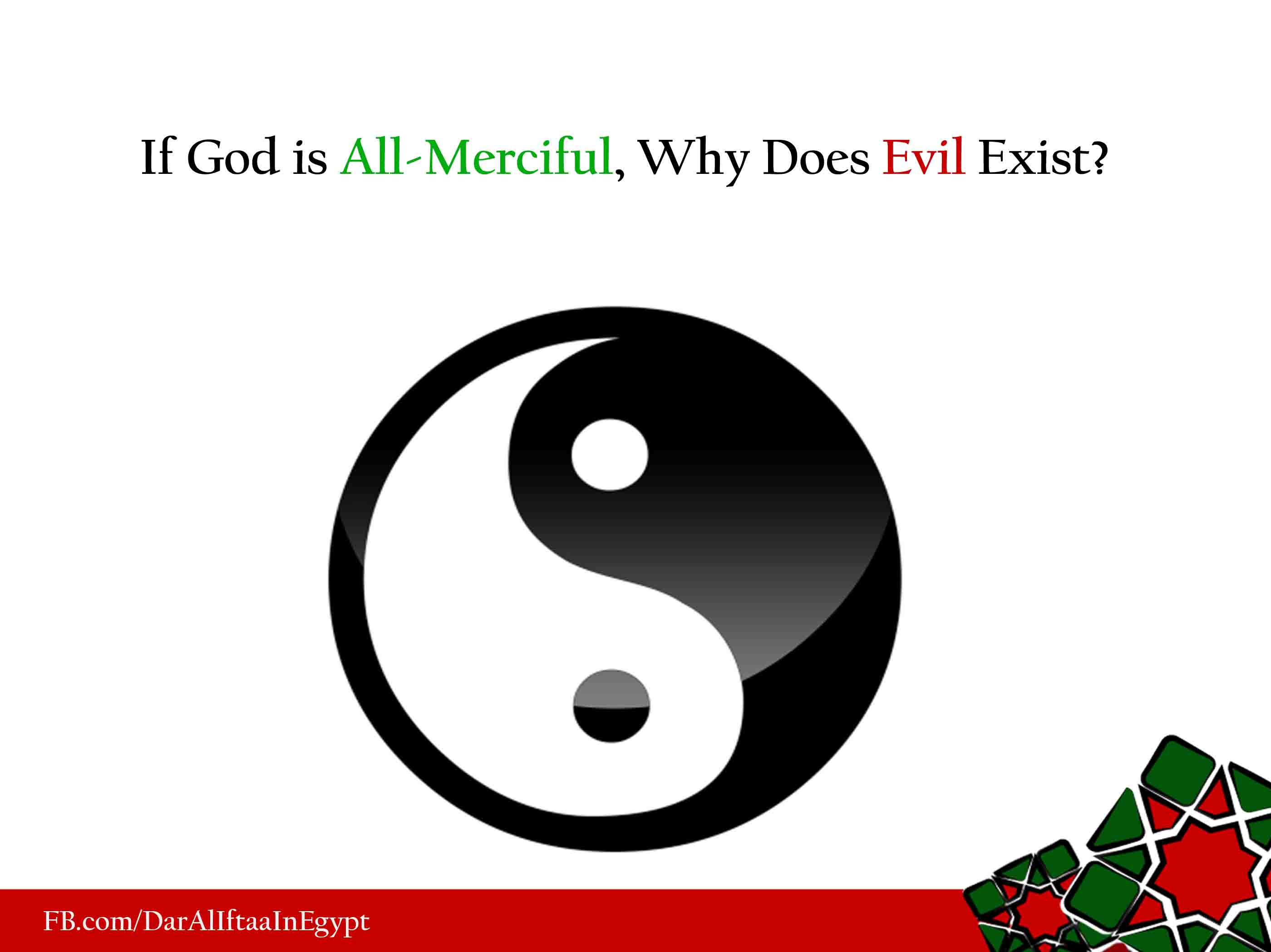If God is All-Merciful, Why Does Evil Exist?

One of the major philosophical issues that atheists and agnostics always raise is why did God, the Ever-Merciful Creator, allow all these evils to exist in the world? They pose questions like why did the Ever-Merciful God create sickness, old age, cancer, microbe, poison, scorpion, earthquake, volcano, floods, storms, burning sun and freezing cold?
The existence of evil in the world is one of the major philosophical issues. In our attempt to respond to this issue, we need to elaborate on the following points:
Goodness is the rule and evil is the exception
First of all, realistically we admit the existence of both evil and goodness in the world. However, which of them is considered the rule and which is the exception?
This is the first question we should reflect on when thinking about sickness, earthquake, volcano and war. Hereupon, we realize that health is the rule while sickness is a temporary exceptional condition. The norm and rule is the earth's stability while the earthquake is an accidental condition. A two-minute earthquake changes the shape of the earth, then everything quietly gets back to normal on the surface level once again.
In this respect, a volcano is an exception too, and the norm is the calm life we daily live. Wars are short intervals of disturbances afflicting the nations, followed by long periods of peace, which is the prevailing rule. Based on this, goodness is the rule and evil is the exception.
Man is expected to live sixty to seventy years in good health, interrupted by intervals of sickness that only last for days or months. Consequently, goodness is the rule and evil is the exception.
Second, hardship begets ease
Nothing can be judged as evil from all sides. Rather, evil itself entails goodness on one side. Volcano, for instance, is the opening that allows all the buried treasures to escape far from below the earth's surface for our own benefit. This process is spontaneously renewed due to the existence of a certain formula in the earth's crust. Volcanos have many benefits such as accumulating fertile volcanic soil, mountains which balance the earth's surface and act like nails to fasten the earth's crust. Volcanos and earthquakes vent the high pressures deep beneath the earth's surface; otherwise, the entire earth would explode. And thus they are a kind of protection. Sickness itself, develops immunity, from hardships comes ease.
In spite of the lethal damages they cause, wars too have good aspects to consider. This is because all human endeavors to unify the world came to existence following wars. This included, for instance, forming coalitions and alliances, establishing the League of Nations, United Nations Security Council and others. All of this was founded following wars in attempts to promote global understanding among nations, form a global human family and abolish the tribal disputes on the individual levels.
Needless to say that all major significant medical inventions and scientific discoveries came to existence at times of war. This included the discovery of penicillin and the invention of jet aircrafts, rockets etc. Huge amounts of money were allocated to develop weapons during wars, and thus nations achieved involuntarily progress in destruction and construction at the same time. We never cease to say that if our forefathers have not passed way, we would have not been able to hold these positions today. Verily, every cloud has a silver lining.
Third, goodness and evil are part and parcel of the existence's balance
Generally speaking, evil and goodness are part and parcel of the existence as they complete each other. The relationship between evil and goodness can be compared to the shadow and light that exist in a photo. Looking closely to the photo, one may imagine that the shadow is an imperfection, however, looking to the whole image at a farther distance, one realizes that the shadow and light form a unique integration into the overall scene.
Without sickness, we were not to appreciate health. It is said that health is a crown on the heads of healthy people which is seen only by those who are sick. Thus, without falling sick, we will not value health, without the existence of ugliness, we will not appreciate beauty and without the night's darkness, we will not enjoy the day's light. Therefore, to realize the value of things, we have to be exposed to its opposites. The Islamic philosopher Abu Hamid al-Ghazali has beautifully commented on this saying, "The imperfections that exist in the universe tantamount to its ultimate perfection, the same as the ultimate effectiveness of a bow lies in its crooked surface. No bow is to perfectly shoot arrows if it was made straight."
Fourth, hardships develop self-endurance.
It is said that what does not kill me, makes me stronger. Hardships reveal the true moral characters of people. Al-Mutanabbi, the Arab poet, wrote a line of verse to this effect meaning that not every person is eligible for nobility, for it requires generosity and courage that many find hard to observe. Hardships distinguish between the generous and stingy, the courageous and coward. The true traits of people were not to be revealed except through the exposures to wars, fears, poverty etc. At times of afflictions and wars, some people would hide and lag behind, while others would go out to firmly fight. In fact, these hardships not only distinguish people in this world, but also in the Hereafter.
 Arabic
Arabic French
French Deutsch
Deutsch Urdu
Urdu Pashto
Pashto Swahili
Swahili Hausa
Hausa
